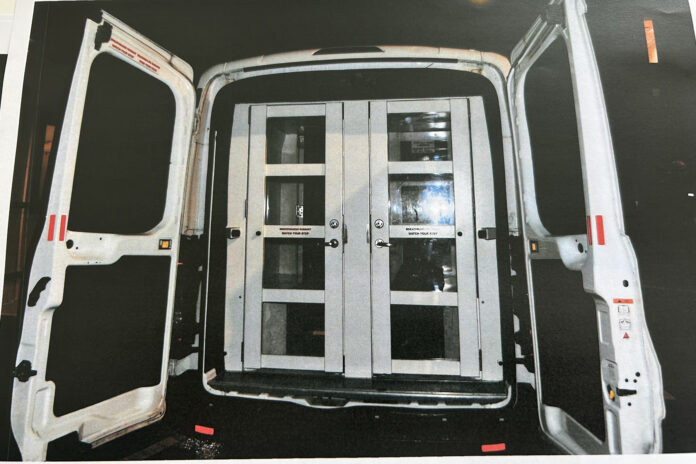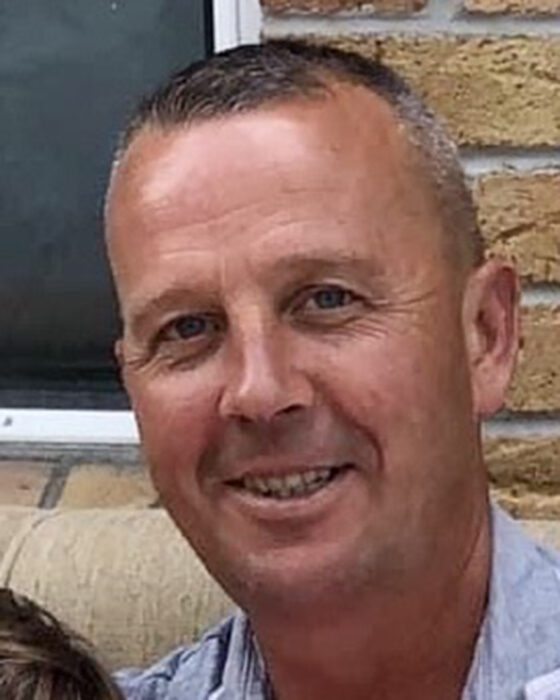
THE sister of a vulnerable man who died while in transit in a Garda van said she fears others will meet the same fate because of an apparent lack of Garda protocols regarding welfare checks on prisoners being transported in cells in Garda vans.
Through her barrister, Jennifer Burke Stack asked a jury at her brother Shane Burke’s inquest to recommend that Garda management make it mandatory for Gardaí to conduct welfare checks on persons being transported in holding cells in Garda vehicles.
A verdict of misadventure was returned by the jury into Shane Burke’s death at his inquest, held at Limerick Coroner’s Court this past Wednesday (June 12).
Mr Burke, from Tralee, County Kerry, was found unresponsive in a holding cell in the rear of a Garda van, after an hour’s journey from Newcastle West to Henry Street Garda Station on February 23, 2022.
Earlier on the day, the 43-year-old discharged himself from Bruree House, addiction treatment service, where he was participating in a 12-week programme for alcohol addiction.
Gardaí found him intoxicated in Newcastle West with a more than half-empty bottle of whiskey and a suitcase containing his belongings.
Garda Philip Gleeson, of Newcastle West Garda Station, said Mr Burke was unsteady on his feet and he was “concerned” Mr Burke would “fall out in front of traffic or cause a road traffic accident”.
He asked two Garda colleagues to transport Mr Burke to Rathkeale Garda Station where he could “sleep it off” while waiting for a loved one to collect him.
Garda Gleeson said he arrested Mr Burke for being drunk and a danger to himself and others after he refused to get into the van “and he told me he hated the Gardaí”.
The inquest heard that Mr Burke would not willingly get into a prisoner holding cell in the Garda van, so Gardaí pulled him into it.

Darren Horan, a civilian witness who came on the scene, said Mr Burke was “a bit agitated” while he was being arrested, but “there was no scuffle” and Gardaí “could not have been nicer to him”.
Inspector Barry Manton, who at the time was a sergeant stationed in Ratheale, gave evidence that he informed Garda Gleeson that Mr Burke should be brought to Henry Street Garda Station as it had more suitable custody facilities.
Garda Claire Moriarty drove the Garda van and was temporarily accompanied by Garda Gavin Griffin.
Garda Griffin, who was not available to attend the inquest, wrote in a deposition that he sat alongside Garda Moriarty in the front passenger seat, and that, at one stage during yhe journey, he looked back towards at the rear holding cell and called to Mr Burke who he said “responded verbally”.
Garda Moriarty gave evidence she stopped the van at Castlematrix (near Rathkeale) and told Garda Griffin she wanted to check on Mr Burke “because he had got quiet”.
Garda Moriarty said Garda Griffin told her he would check on Mr Burke.
Garda Moriarty said she stopped the van again at Croagh (located about 29 kilometres from their final destination at Henry Street Garda Station) to allow Garda Griffin return to Newcastle West, and Garda Gleeson sat into the front passenger seat.
At this juncture, Garda Moriarty said she got out of the van and knocked on the door of the holding cell and asked Mr Burke “if he was okay, and he responded verbally saying ‘yeah’ in a semi-shout”.
Garda Gleeson told the inquest that while he did not physically check on Mr Burke, nor could he remember looking back towards the cell, he could hear Mr Burke “making sounds” and “at no stage was I ever concerned for him”.
Garda Moriarty told the inquest that no further checks were carried out after Croagh, however the inquest heard there was confusion over the times the final check and that it may have been 20 or 27 minutes before the van reached its destination.
Garda Moriarty said when they arrived at Henry Street Station, she opened the cell and found Mr Burke unresponsive and without a pulse.
Garda Moriarty broke down in the witness box, describing how she “kept calling him but there was no response”.
Gardaí performed CPR at the scene and Mr Burke was transferred by ambulance to hospital where he was pronounced dead.
Seats positioned between Garda Gleeson and Garda Moriarty – which the inquest heard would allow Gardaí to more closely monitor a prisoner in the van’s holding cell, were not used during the journey.
Garda Moriarty agreed she had a “duty of care to check” prisoners in the van.
State Pathologist, Dr Sally Anne Collis, who conducted a post mortem on Mr Burke’s body, determined that he had suffered cardiac arrest and died due to acute alcohol and benzodiazepine intoxication.
Dr Collis said bruises found on Mr Burke’s body were not concerning and not linked in any way his death.
“None of these looked concerning, nor (did it look like) that he had been the victim of a violent assault, I couldn’t find anything overtly concerning,” Dr Collis added.
In a final submission, Elaine Houlihan, Junior Counsel, acting for Jennifer Burke Stack, asked the jury to make a recommendation that any Garda travelling in custody vehicles containing holding cells should have to follow specific procedures in respect of carrying out welfare checks of prisoners on board, and that Gardaí should receive training in using CCTV monitors in Garda custody vehicles.
“The question is, if there were protocols in place around welfare checks, would it have led to an intervention earlier?,” Ms Houlihan asked.
Ms Houlihan said Gardaí have to follow procedures under the Criminal Justice Act 1984, and keep an accurate custody record of prisoners in Garda station cells. She explained that they must conduct regular welfare checks of intoxicated prisoners in Garda stations.
“If there was protocols in place in respect of custody transits, perhaps this would not re-occur,” Ms Houlihan said.
In response, Dan O’Gorman, solicitor acting for the Garda witnesses, said that “Gardai are almost over-regulated, Gardaí already have a common law duty of care which is ‘common sense’.”
“To translate this case into a call for regulation or further training is requesting a little bit too much from An Garda Síochána.”
Coroner John McNamara said inquests determine the cause and circumstances of a person’s death, they do not implicate or exonerate anyone, nor do they determine any civil or criminal liability. He said there was no suggestion that Gardaí had not acted properly in this case.
Mr McNamara said Shane Burke was a “vulnerable” person and passed on his sympathies to his family, as did Gardaí, and a representative from the Garda Siochana Ombudsman Commission..
Speaking afterwards, Jennifer Burke Stack said she was happy with the jury’s verdict but disappointed it did not act on her barrister’s submission.
“I was very appreciative of the jury’s decision, but I was extremely unhappy that they did not garner from this inquest that it was made clear by the Gardaí present that there are absolutely zero regulations in place, for anybody who gets into the back of a Garda van and is locked in – that is literally a no-man’s land in terms of the law.”
Ms Burke Stack said she would always be left wondering that her brother might not have died had he been checked by Gardaí during the final 20-27 minutes of the journey.
“I feel that we have an infringement on all our human rights, if tomorrow any of us are put in the back of a Garda van.”
“It was stated clearly by Gardaí that they are not trained in how to use the CCTV monitor, so why would you put a monitor in (a garda van) if you don’t tell people (how to use it) and not have it switched on?”
Ms Burke Stack said she believed Gardaí on the day did the best they could with the training they had, but that the current system is “not good enough”.
She called on the Garda Commissioner to implement changes to make it mandatory for Gardaí to carry out regular physical welfare checks on prisoners in Garda vans in order to ensure their safety while in custody.










